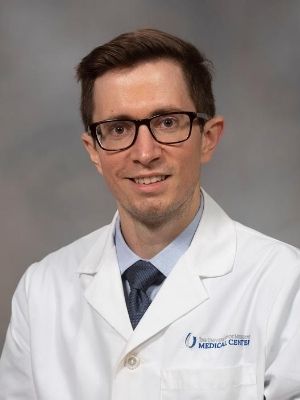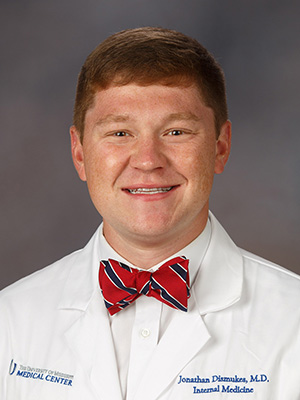Heart health can improve sooner with new screening tool
It’s always a good time – and age – to have heart screenings as cardiologists work on sharpening the tools used to measure risk factors for cardiovascular disease, the world’s top cause of death.
University Heart experts are updating their EPIC patient management software for the latest update to the online risk calculator from the American Heart Association, the Predicting Risk of cardiovascular disease EVENTs tool. It uses key factors such as cholesterol, blood pressure, body mass index, blood sugar, diabetes status and behavioral factors such as smoking to predict a patient’s risk for heart attacks and strokes.

The patient pool is expanding in a younger direction to help people figure out their health outlook sooner rather than later, said Dr. Bradley Deere, assistant professor of cardiology at UMMC and director of its heart screening program.
“It expands the lower end of the age range from 40 to 30 and gives us a chance to look at younger folks who want to know their risks,” Deere said. “So, we’ll have a more diversified patient population to predict 10-year risks and, hopefully, a 30-year risk up to age 79.
“When significant, the risk factors can cause stress to the blood vessel wall. If we have high cholesterol or ongoing inflammation, it’s not as easy for the body to repair damage to the arterial walls, which can result in damage to the whole arterial system.”
Integrating the AHA PREVENT risk calculator into UMMC’s epic platform is the first update to the screening’s risk measurement process since 2013. It will allow UH specialists to determine the best course of action for patients who are screened, whether it be changing diet and/or exercise routines or offering medical therapies such as statins.

“Take for example an obese 35-year-old male with poorly controlled hypertension on one blood pressure medication as well as high cholesterol and tobacco use,” said Dr. Jonathan Dismukes, internist and resident on staff for screenings. “While we may not start him on statins at this stage, encouraging him to lose weight and stop smoking by 36 could reduce his CVD risk by about 37% in 10 years and 27% in 30 years. The goal of this project is to help providers inform patients of their health and encourage change for long-term benefit.”
CVD takes about 18 million lives worldwide, much of it being preventable with early detection through tools such as what’s used by Deere and other cardiologists. Among the multiple groups of disorders of the heart and blood vessels is coronary heart disease of the blood vessels, often referred to as an “arterial tree,” Deere said.
Coronary arteries on the left and right side of the heart pump blood by sending oxygenated blood to the heart, allowing muscles to function. Blockages can form in the arteries by buildup of plaque, or atheroma, from any of the standard risk factors cardiologists like Deere measure for in heart screenings.
“Our heart’s primary function is to pump blood and supply oxygen and nutrients to organs and muscles throughout the body,” Deere said. “The way it does that is through the arterial tree of our blood vessels. People use different analogies but think of it as plumbing and pipes. We need those vessels to stay open for adequate blood flow for where it needs to go.”
Heart screenings offered by University Heart may be scheduled via referral from a primary physician or directly. The non-invasive screenings take about 30 minutes and include a CT calcium score reading, an electrocardiogram (EKG), a body mass index (BMI) reading, a blood pressure check and bloodwork for cholesterol and glucose.
The Healthy Heart screening is self-pay only and is $100. Few screening programs offer as extensive a round of measurements – including coronary artery calcium scoring, EKG and lab work – for this fee, Deere said.
To schedule an appointment for a screening, call 601-815-4321 or visit here. Results are available in MyChart within about seven business days.
The above article appears in CONSULT, UMMC’s monthly e-newsletter sharing news about cutting-edge clinical and health science education advances and innovative biomedical research at the Medical Center and giving you tips and suggestions on how you and the people you love can live a healthier life. Click here and enter your email address to receive CONSULT free of charge. You may cancel at any time.



